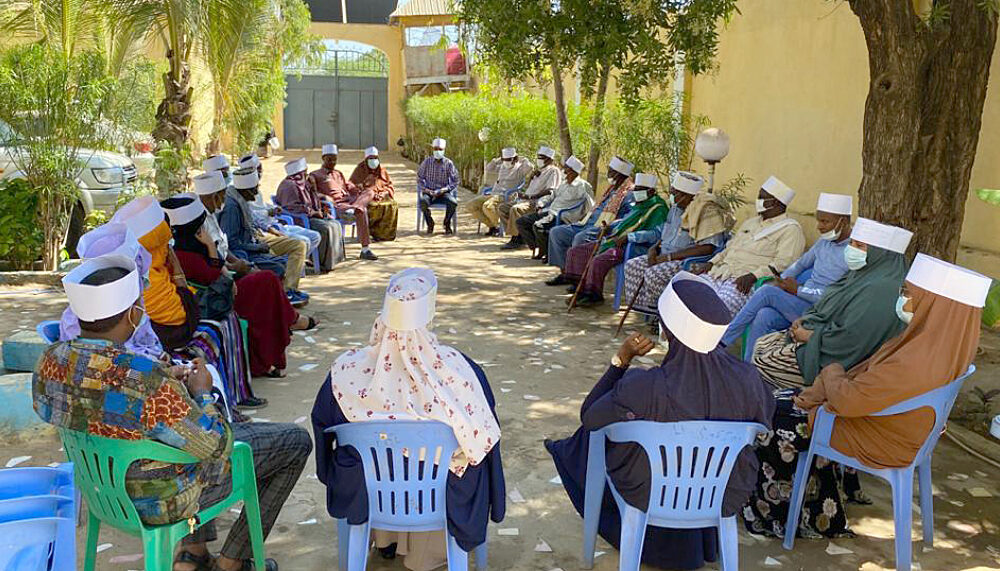
A word from our Executive Director
Unexpected challenges were plentiful in 2020, but we nonetheless carried out work and research on over 30 countries and territories during the year.
Welcome to our annual report. Scroll through to learn about our activities.

Unexpected challenges were plentiful in 2020, but we nonetheless carried out work and research on over 30 countries and territories during the year.
In 2020, the global COVID-19 pandemic posed a huge challenge to people in conflicts and, as our work is all about bringing people together, to our peacebuilding work around the world.
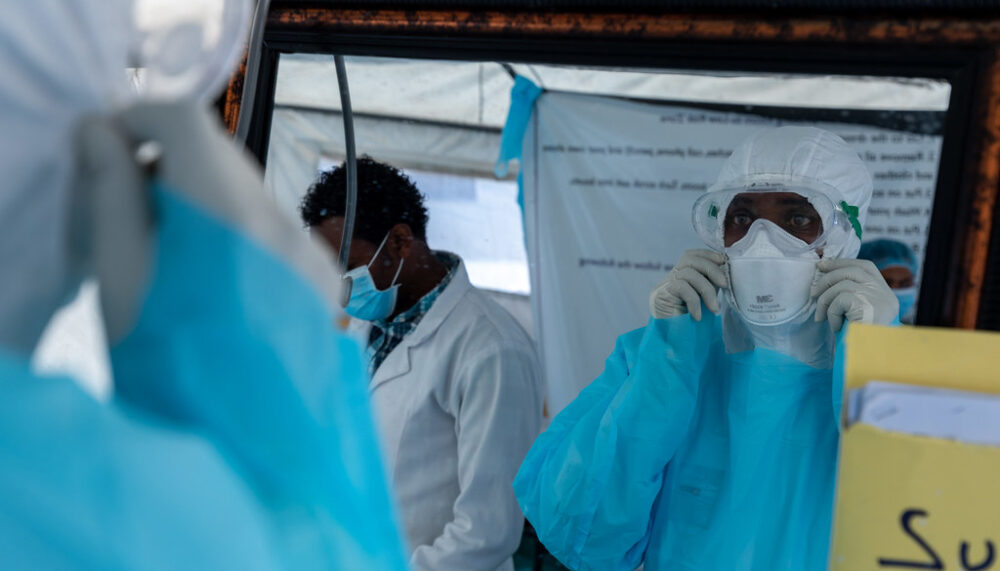
Our staff and partners demonstrated a remarkable level of flexibility and creativity to find new ways to reach people in conflict and to support them in engaging in dialogue and negotiations that allowed us to implement 47 projects and consultancies throughout the year. Our teams adapted meeting and workshop formats to digital platforms, developed digital training materials and conducted trainings on online facilitation, both for in-house staff and partners.
In our project in the Caucasus region, this transition reduced the need for often lengthy and strenuous travel and allowed us to bring more people into direct dialogue than in the last 19 years of engagement in the region. In the past year, our team managed to organise almost 1,500 online dialogue workshops where people from both sides of the conflict listen to different perspectives and exchange their stories. With our work, we support our partners in overcoming the 'silence on history'.
In Yemen, digital formats led to the increased participation of women in our workshops, making the discussions and decision-making more inclusive. We are engaged in a series of projects in Yemen ranging from high-level talks to community-level engagement. Learn more about our work and why it is a great example of how to engage on multiple levels of a peace process here.
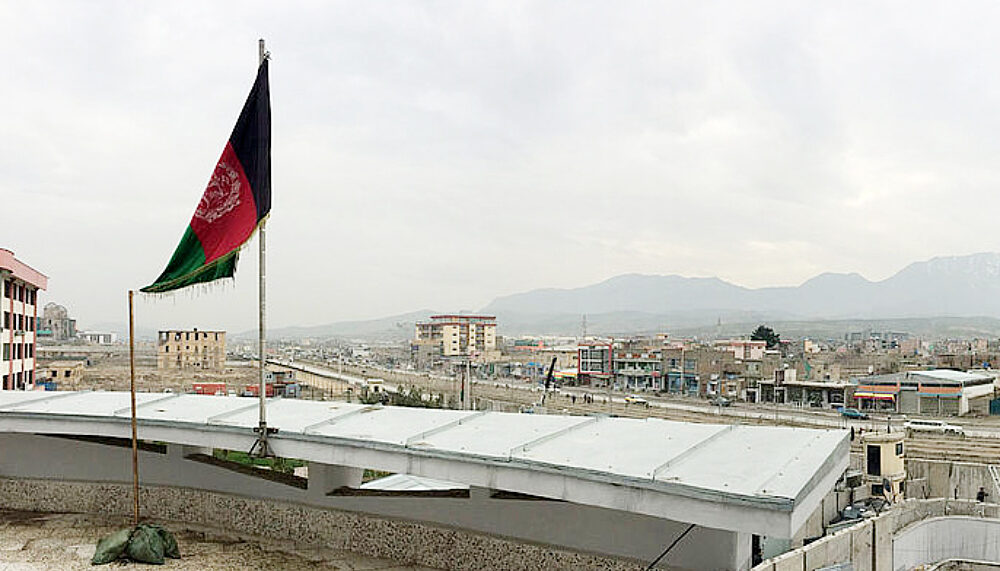
Our teams also developed concepts that allowed us to safely organise over 175 training sessions, workshops and conferences in a variety of settings around the world, despite the pandemic.
In Somalia, we continued our successful series of grassroots Shirarka meetings where members of local communities come together and build peace by solving local conflicts.
After more than five years of active support for the implementation of the peace agreement in Colombia, our joint project with Como Consult came to a successful end and activities were handed over as planned to national and regional counterparts.
Late in the year, a framework agreement was reached for peace talks on Afghanistan: Afghan government and Taliban movement representatives came to accord on the procedure and the preamble of the ongoing peace negotiations in Doha, Qatar. Berghof staff have been supporting the Afghan peace process for seven years and our team has been providing process-related and thematic support to both negotiating teams.
In 2020, we kicked off an EU-funded project that analyses ways to raise the resilience of local communities against radicalisation and violent extremism. Together with 13 partners, our research team is looking into countries in the Western Balkans and the Middle East and North Africa.
We also launched a booklet and a documentary film that seek to amplify some of the hidden and forgotten voices in conflict: the voices of female ex-combatants. The stories of these women from diverse political, religious, ethnic and national backgrounds show that women and their experiences of armed conflict have to be taken seriously in order to build sustainable peace. The women’s stories were filmed and collected by insider-researchers, who were former female fighters themselves. These women became sought-after advisors in peer-to-peer learning settings while also sharing their experiences and conducting lectures internationally. Read more about why we believe that it is crucial for peace processes to be inclusive in order to achieve sustainable, long-lasting peace here.
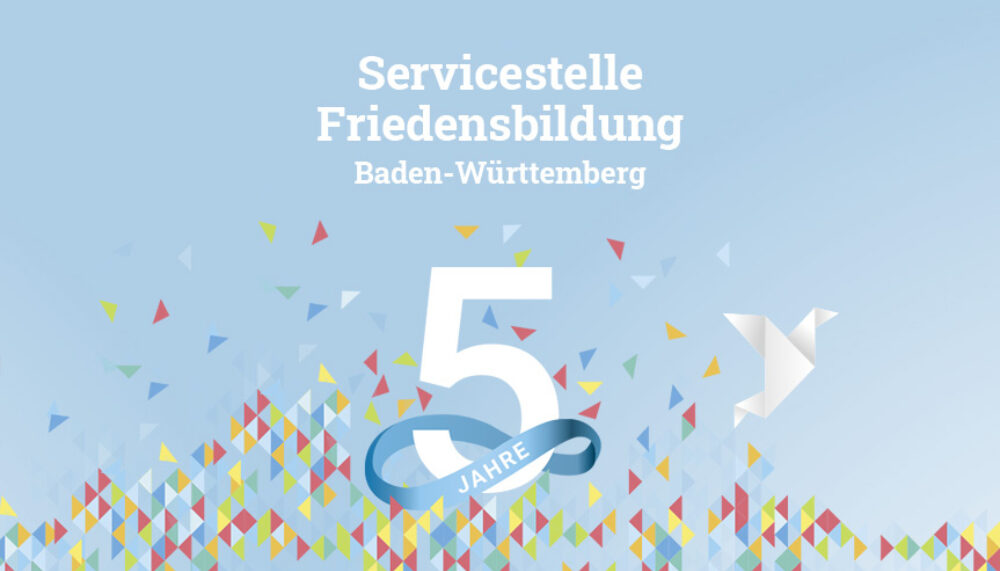
In 2020 we also celebrated the fifth anniversary of the Service Centre Peace Education. Since 2015, the Service Centre is the point of contact for teachers and students in the state of Baden-Wuerttemberg, Germany – it answers questions around peace and conflict and offers guidance on how to integrate peace education into school curricula and projects. During the past five years, the centre has developed online and offline learning materials on peace education topics, offered trainings, and engaged students in discussions on how to achieve peace on a local and global level. You can read more about our peace education work in Germany and other parts of the world here.
We also continued to counter conspiracy theories online, started new projects on the link between religion and peacebuilding, continued our work with resistance and liberation movements, developed an online peace education training and launched several research reports, policy briefs, and hands-on resources for peacebuilding work in various contexts. You can find a selection below or browse our library for more.
To stay up to date with our activities, subscribe to our newsletter or follow us on Twitter, Facebook or LinkedIn.
Partnerships are central to everything we do. In 2020, we partnered with over 40 local organisations around the world and many international peer organisations, multilateral agencies and global networks.
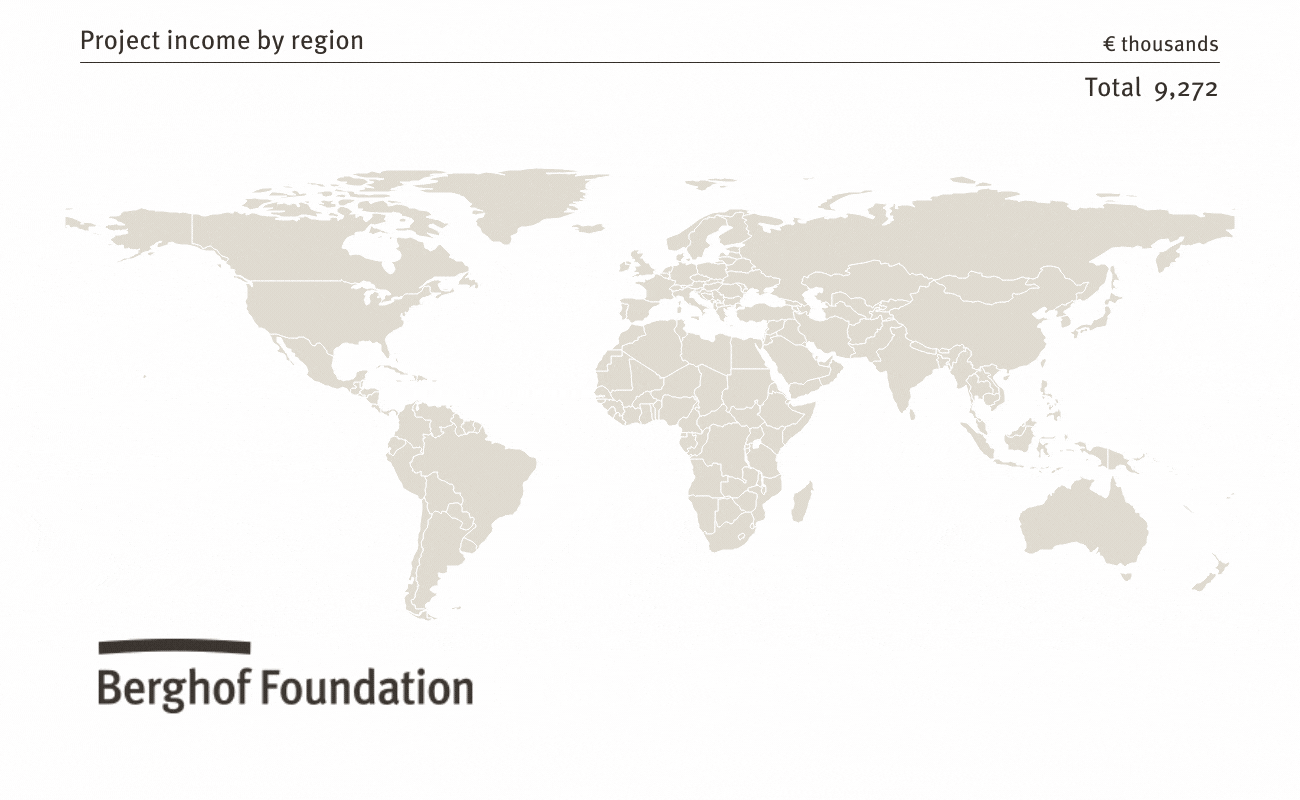
Together we have enhanced the field of conflict transformation and provided concrete support to many people in conflict. We are very fortunate to have trusted, longstanding relationships with so many courageous individuals and organisations and are grateful to every one of you.
In 2020, our operating revenue increased to €10.7 million, reflecting Berghof’s organisational growth. You can find our auditors’ report for download below.
As an organisation we continue to plan, adapt and adjust to the external circumstances and context of our work, and are working to ensure the sustainability of our organisation. The commitment of our long-standing partners has been critical to our achievements during 2020 and we are extremely grateful to our key donors:
Our work is supported by many people and institutions who share our commitment to building peace and we would like to thank all our partners for their generous support of our work.
The vital work of the Berghof Foundation would not be possible without our exceptional team. In 2020, Berghof was represented by a diverse body of over 90 people and welcomed a new Executive Director, Andrew Gilmour, who joined us after 30 years of service with the UN, and a new Director of Administration, Sven Arndt, who brings many years of experience in the public and nonprofit sectors. We remain grateful to our Board of Trustees, which has supported us throughout the year with advice and scrutiny of our work.
In 2021, we would of course like to go even further, increasing our positive impact on people in conflict all around the world. Many of our projects need your support and our joint investment in peace.
Learn more about our finances:
The following institutions supported our work during 2020:
In 2021, the Berghof Foundation is commemorating its 50th anniversary with a series of public events. We also shared our strategic priorities for the coming years, continuing our established work areas while also engaging with additional focal areas such as climate change, protest movements, and gender in conflict transformation.